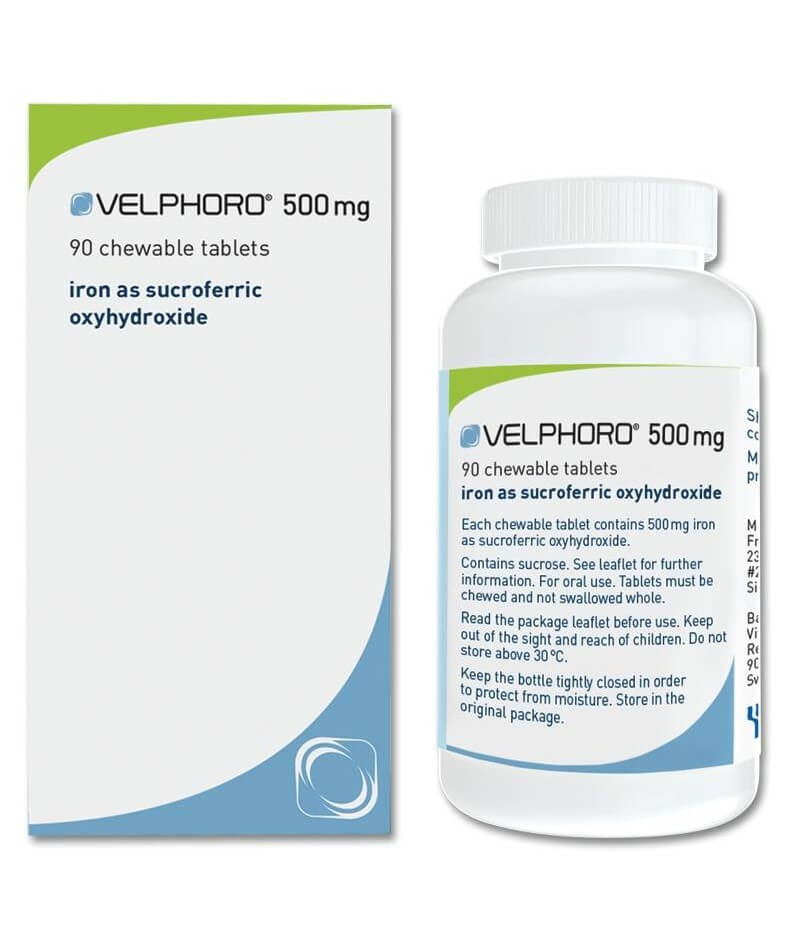This text is for informational purposes only. Please consult a doctor or pharmacist before using any medication.
Read the information leaflet that comes with the medication.
Most people who use Velphoro do not experience any negative side effects. Doctors prescribe Velphoro because they assess that the benefits that such treatment yields outweigh any likely unwanted effects
Some potential side effects of Velphoro include:
- Diarrhea, usually at the beginning of treatment
- Black stool
- Increased fatigue
- Shortness of breath
- Nausea and vomiting
- Stomach or bowel pain
- Change in taste
- Constipation
- Indigestion, bloating, and flatulence
- Discoloration of teeth.
Not all side effects are listed here. If these or other unlisted symptoms persist or worsen, consult a healthcare provider or pharmacist.
Velphoro is indicated for the management of chronic kidney disease. It is specifically prescribed for managing electrolyte imbalances and correcting the levels of phosphorus in the blood in patients who are undergoing treatments for CKD, such as hemodialysis and peritoneal dialysis.
Chronic kidney disease is a condition characterized by the gradual loss of renal functions. The term comprises a number of conditions that impair the kidneys’ ability to effectively filter waste products from the blood. This eventually leads to the accumulation of excess water and toxic products in the body, resulting in a decline in the patient’s overall health.
In advanced stages, CKD necessitates interventions, such as dialysis or kidney transplantation to sustain life.
If not managed properly, chronic kidney failure can progress, allowing the waste products in the blood to reach harmful levels. This might increase the likelihood of developing complications, such as cardiac failure.
Peritoneal dialysis and hemodialysis are common treatments recommended for patients who suffer from advanced stages of CKD at which the efficiency of the kidneys to filter blood and eliminate toxic waste is significantly hampered. These treatments involve passing the blood through a machine that acts as an artificial kidney to filter blood. The filtered blood is then reinfused into the patient’s body.
Although dialysis helps to eliminate waste from the body and reduces the risk of complications associated with the build-up of toxins, it also causes imbalances in the levels of electrolytes, such as phosphorus and potassium.
Treatment with Velphoro can help to correct phosphorus levels in the blood, thereby lowering the risk of complications associated with both hyperphosphatemia as well as hyperkalemia.













